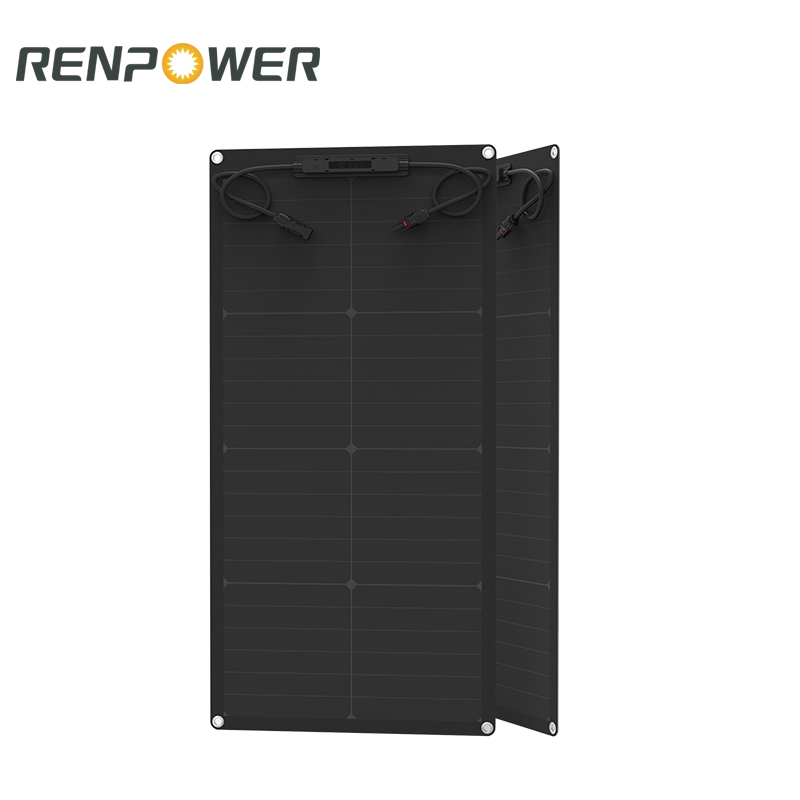Exploring the Benefits and Uses of Flexible Solar Panels
2025-03-21
In recent years, solar technology has undergone significant advancements, leading to more efficient and versatile solutions for harnessing solar energy. Among these innovations, flexible solar panels have emerged as a game-changer, offering an exciting alternative to traditional rigid solar panels. These lightweight, adaptable, and durable panels are revolutionizing the way we think about solar energy, making it more accessible and versatile for various applications.
In this blog, we’ll dive into the world of flexible solar panels, discussing their benefits, uses, and the reasons they’re becoming increasingly popular in a range of industries.
What are Flexible Solar Panels?
Flexible solar panels are solar cells that are mounted on a flexible substrate, such as plastic, instead of traditional rigid materials like glass. This flexibility allows them to bend and conform to various surfaces, making them ideal for use in applications where rigid panels may not be suitable. These panels are typically made using thin-film solar technology, which is lighter and thinner than conventional silicon-based solar cells.
While flexible solar panels have lower efficiency compared to traditional rigid panels, advancements in technology have significantly improved their performance, making them a viable option for many applications.
Key Benefits of Flexible Solar Panels
1. Lightweight and Portable
One of the most significant advantages of flexible solar panels is their lightweight design. These panels are far lighter than traditional rigid solar panels, making them easy to transport and install. This makes them a perfect solution for off-grid applications, portable devices, and emergency power systems. Whether you’re camping in the wilderness or traveling in a van, flexible solar panels can be an essential part of your energy setup.
2. Easy Installation and Versatility
Flexible solar panels are incredibly easy to install due to their lightweight and bendable nature. They can be applied to curved surfaces, which traditional solar panels cannot. This adaptability allows them to be used in a wide range of applications, including on rooftops, RVs, boats, tents, and even clothing.
The ease of installation also means that you don’t need specialized equipment or a team of professionals to set them up. Many flexible solar panels come with adhesive backings, making the installation process as simple as peeling and sticking them onto your desired surface.
3. Space Efficiency
Flexible solar panels are designed to be thin and compact, meaning they can be used in areas where space is limited. Whether you’re outfitting a small cabin, an RV, or a boat, flexible solar panels can be installed in tight spaces that would otherwise be unsuitable for traditional solar panels. Their versatility allows them to be seamlessly integrated into your space without taking up valuable room.
4. Durability and Weather Resistance
Flexible solar panels are made from materials that are highly durable and resistant to weather elements. Unlike traditional glass panels, which can be fragile and prone to breaking, flexible solar panels can withstand harsh conditions, including high winds, rain, and even light impacts. Many flexible solar panels are also designed to be waterproof and UV-resistant, ensuring that they continue to operate efficiently even after prolonged exposure to the elements.
5. Aesthetically Pleasing
Flexible solar panels can be integrated into the design of buildings, vehicles, and other structures more easily than traditional panels, making them a more aesthetically pleasing option. Whether you want to add a solar solution to a curved roof, a boat, or a portable device, flexible panels offer a sleeker, less obtrusive appearance. This makes them an excellent choice for people who are concerned about the visual impact of traditional solar panels on their property or vehicle.
Common Applications of Flexible Solar Panels
1. Off-Grid Power Solutions
Flexible solar panels are ideal for off-grid applications where access to electricity may be limited or unavailable. They can be used to power cabins, tiny homes, or remote installations. Their portability and ease of installation make them perfect for providing energy in areas where setting up a traditional solar array would be challenging or expensive.
2. Mobile Applications
Whether you’re traveling in an RV, van, or boat, flexible solar panels can provide a consistent source of power while on the move. They can be installed on the roof of a vehicle, allowing you to harness solar energy to charge batteries, power appliances, or run lighting systems. Their lightweight and space-efficient design make them an ideal choice for mobile energy solutions.
3. Camping and Outdoor Adventures
For those who enjoy camping, hiking, or other outdoor activities, flexible solar panels can provide a reliable and portable energy source for charging electronic devices like phones, GPS systems, and cameras. They can be easily carried in a backpack or mounted on a tent or camping gear, ensuring that you have access to power even when you're far from civilization.
4. Wearable Solar Devices
Flexible solar panels have even made their way into wearable technology. These lightweight, bendable panels can be incorporated into clothing or accessories such as backpacks, jackets, and hats, providing on-the-go solar charging for small devices. This innovation is a game-changer for hikers, travelers, and anyone who needs to keep their devices charged while out in the field.
5. Building-Integrated Photovoltaics
In addition to mobile and off-grid applications, flexible solar panels are also being integrated into the architecture of buildings. They can be applied to curved roofs, windows, or even walls, making them an attractive and efficient option for renewable energy in urban environments. Flexible solar panels can be seamlessly incorporated into the design of a building, providing clean energy without compromising aesthetics.
Considerations When Choosing Flexible Solar Panels
While flexible solar panels offer numerous benefits, it's essential to consider a few factors before making a purchase:
- Efficiency: While flexible solar panels are improving in efficiency, they typically have a lower energy conversion rate compared to traditional silicon-based panels. Make sure the panel you choose provides the necessary output for your power needs.
- Size and Coverage: Consider the amount of space available for installation and the power requirements of the devices you intend to charge or power. Choose a panel that fits your needs in terms of size and capacity.
- Durability: Although flexible solar panels are designed to be durable, it’s important to ensure that the specific model you choose is suitable for your environment. Some models may be more resilient to harsh weather, while others may be better suited for indoor or sheltered environments.
Conclusion
Flexible solar panels are an exciting advancement in solar technology, offering a lightweight, portable, and versatile solution for harnessing solar energy. Their ease of installation, space efficiency, and durability make them ideal for a wide range of applications, from off-grid power solutions to wearable solar devices. Whether you’re an outdoor enthusiast, a traveler, or simply looking to integrate renewable energy into your daily life, flexible solar panels provide a reliable and efficient energy source.
As technology continues to improve, flexible solar panels will likely play an even more significant role in sustainable energy solutions, helping to reduce reliance on traditional power grids and promote cleaner, greener energy options.



